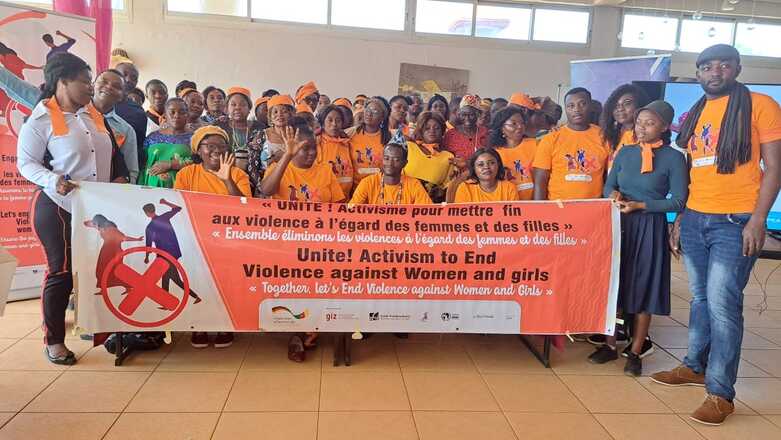Civil Peace Service: Promoting dialogue, non-violent conflict resolution and youth participation in Cameroon
Promotion of cooperation within civil society and the active participation of young people in social processes as a contribution to peacebuilding and the prevention of violence in Cameroon
-
Commissioning Party
German Federal Ministry for Economic Cooperation and Development (BMZ)
-
Country
-
Overall term
2020 to 2024
-
Products and expertise
Security, reconstruction, peace
Context
Society in Cameroon is polarised by social conflicts as well as violent, armed clashes between Islamist groups in the north and militant Anglophone groups in the west, all of which threaten the country’s stability. Poverty, unemployment, social injustice and conflicts over land lead to dissatisfaction, especially among young people. The high number of internally displaced persons from the west and people fleeing from Nigeria and the Central African Republic is also putting a strain on the host communities.
Objective
Civil society partner organisations in Cameroon cooperate successfully on non-violent conflict resolution, social participation and promoting resilience

Approach
The Civil Peace Service (CPS) programme in Cameroon has three fields of action:
- Cooperation between civil society organisations
In workshops, working groups and joint activities, the partner organisations network and thus improve their cooperation. They develop dialogue formats for the non-violent resolution of conflicts and also draw on concepts from other CPS programmes.
- Participation of young people
The programme improves the participation of young women and men in decision-making processes and promotes their dialogue skills. In this way, they learn to deal with and prevent conflicts constructively and without resorting to violence. Local state institutions and traditional authorities are also involved. Creative forms of expression will help to establish human rights in conflict resolution.
- Psychosocial support
Training and support programmes help affected communities to deal with stress and burdens. The programme also supports civil society actors in coping with their own stress and managing situations in which they are confronted with violence.
Last update: November 2023




